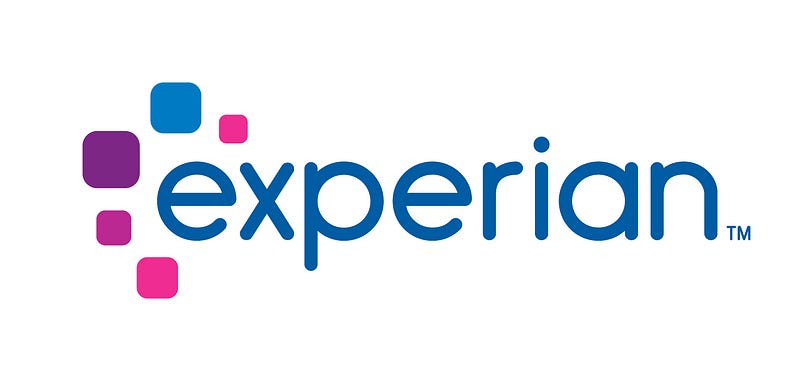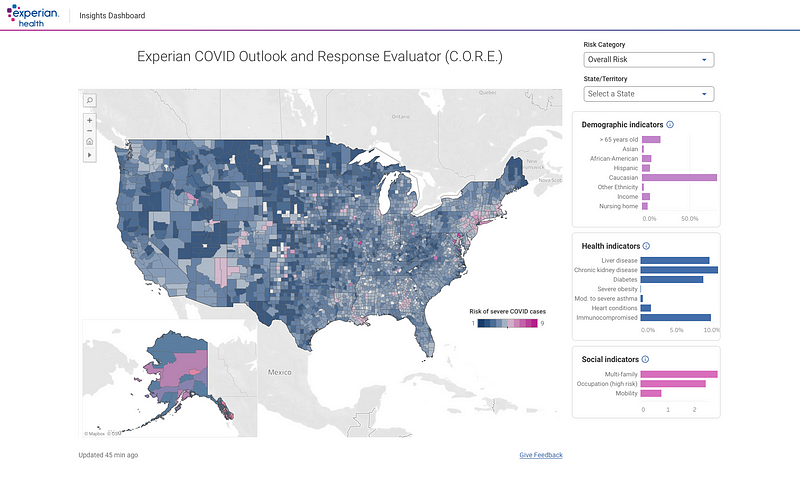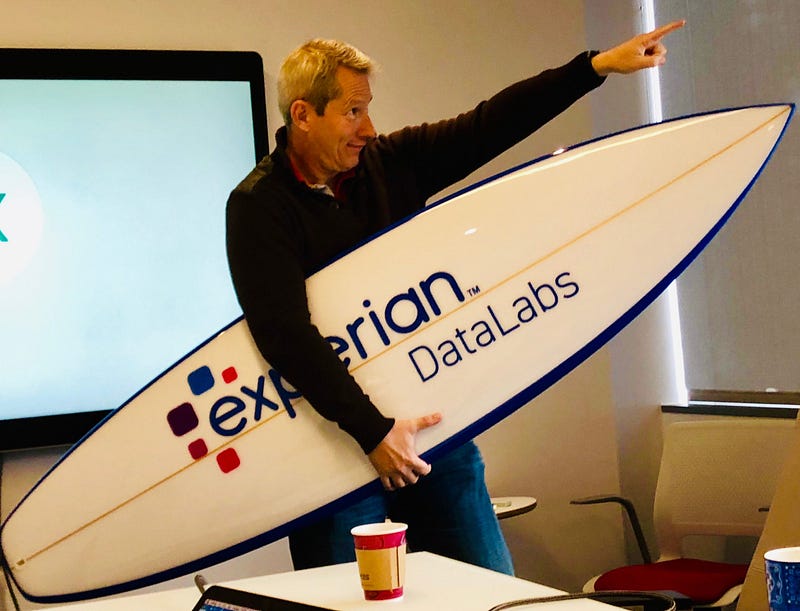Originally published at https://freshbrewedtech.com on May 23, 2020.
This series is dedicated to late HNC co-founders Robert Hecht-Nielsen and Todd Gutschow, who set the stage for San Diego’s vibrant analytics and data science community.
In the early 2000’s, big data analytics was just beginning to gain mainstream momentum. San Diego was in the center of this commercial revolution, with several companies leading the way, including HNC Software, which was known for its novel neural network predictive decision engines created by late founder Robert Hecht-Nielsen.
In 2000, Eric Haller , who had already been working in the financial services industry for about a decade, was offered his “dream job” at HNC, which, at the time, was a Wall Street darling.
“It seemed they were bringing machine learning into a variety of industries — financial services, retail, telco, insurance, healthcare and basic tech functions like web search and emails,” recalled Haller, who spent five years at credit reporting firm [AS1] [TM2] Experian before joining HNC. “Everyone knew HNC was ‘hot’ and the company quickly had a market cap over $1 billion. Bruce Hansen (former HNC president) offered me my dream job — to be CMO for the financial services division. I already was living in San Diego, so location was an easy choice.”
Haller stayed at HNC for two years before launching another OG San Diego analytics startup with Hansen (more on that later). Below we take a closer look at Haller’s career, during and post-HNC, including his current role at Experian (yes, he went back!), and why he’s jazzed about San Diego’s growing analytics talent and industry.
HNC Days: Haller began his two-year stint at HNC as VP Marketing for the Financial Services Division. He was soon elevated to CMO and Group VP.
“I loved it. I was inspired every day. My first week on the job I ran into a problem that I thought could be solved with a combination of software and machine learning. My instinct was to find a business to partner with and leverage what they had but none existed. I was the new guy. Then took me to the side and said, “Eric, this is HNC. You don’t need to find someone to make this happen — we can build it!” It was a real ‘can do’ environment and it seemed like there wasn’t a problem that we couldn’t figure out how to solve.”
When asked about some of HNC’s biggest accomplishments, Haller answered, “We spun off Retek for something like $1 billion. We created Mindwave — which focused on web search and email response. We rolled out Falcon in a more significant way outside the US and created a number of distribution and value-added partnerships to solidify their position in credit card fraud detection. We acquired Blaze Software, Roamex and Card Alert Services along with a number of EDI businesses in the Worker’s Comp insurance space.”
“HNC was the nexus for everything ‘hot’ in the market,” he added. “We had a steady stream of interesting people, ideas and businesses coming through from all over the world on a very broad set of topics. That was a bit of a rush all in itself.”
ID Analytics: Before joining HNC, Haller actually co-founded an analytics startup called iDawg. However, “When the market crashed our funding situation crashed with it,” he said. “We went from a pre-money market valuation of $60 million to $3 million in weeks. So, we shelved the idea and figured we’d come back to it when the market changed.”
During his time at HNC, Haller said clients frequently asked him about iDawg. “The idea of ID fraud detection got them pretty excited. I pitched the idea of running with it at HNC to , but he wasn’t excited about the idea of buying our shares off of us.”
When Bruce Hansen left HNC, Haller approached him and asked if he had an interest in iDawg. Hansen, who co-founded Analytics Ventures with fellow HNC alumnus Steven Gal, liked the idea.
“I walked him through all of our research, the market need, our approach and the fact clients kept asking about it,” Haller said. “I told him my partners and I only wanted equity in the business so if he took it on that’s all we wanted. He did his own leg work and felt it was a good idea. He gave us equity in his business Analytics Ventures for iDawg. Within weeks, he raised $10 million with Steve Gal and renamed the business ID Analytics. One of my iDawg partners, , asked to be a part of things from the beginning, so Bruce included him as a cofounder of ID Analytics. I stayed on at HNC until we were acquired by FICO. I loved HNC and even though the kernel of ID Analytics was ‘my baby’ I really didn’t want to leave HNC.”
Running with his iDawg venture proved to be a successful one for Haller and its founding investors. After being bought in 2002 and renamed ID Analytics, the company — which targeted identity theft detection and consumer alerting — was acquired by LifeLock in 2012 for $210 million and then by Symantec, and then sold to LexisNexis Risk Solutions for $375 million in January 2020.
“I think both ID Analytics and HNC have fueled the attraction of a lot of analytic talent to San Diego,” Haller said. “Robert Hecht-Nielsen was a draw at UCSD and we hired a lot of Ph.D. graduates from UCSD — he came to that school for its reputation in computer science and machine learning. It’s turned San Diego into a unique hub of analytic talent.”
Lessons Learned: During his time at both HNC and ID Analytics, Haller said he learned that, “First and foremost anything is possible. If you can dream it up you can find the right people to build it. I take a lot more risk now in my work because of those two experiences. I’m not afraid of the unknown — in fact, I get a rush going after it. Both companies were exceptionally entrepreneurial with a positive outlook on the future.”

Skill Sets: Speaking of talent, Haller continued to hone his skills after HNC and ID Analytics, including taking on the role of VP and General Manager of New Products for Sequoia Capital-backed Green Dot Corp . in Pasadena, Calif., where he creat ed and brought to market the first credit card a consumer could purchase off of a j-hook hang tab in a retailer.
Green Dot — one of Tech Coast Angels ‘ most successful investments — is now the world’s largest prepaid debit card company, and went public in 2010 with a valuation of $2 billion.
Experian DataLabs: In 2007, Haller was recruited to return back to Experian, where he is now Executive Vice President and Global Head of Experian DataLabs . The unit is the R&D part of Experian, which provides consumer and business credit reporting and marketing services. In this role, Haller is responsible for the company’s global innovation labs with an emphasis on development of new products and services across all business units and geographies. Experian DataLabs is pioneering artificial intelligence applications in mobile, voice, fraud, credit, marketing, social media, digital advertising, and healthcare. The labs that Haller manages — in North America, UK, Brazil and Asia — are made up of high performing data scientists, engineers, strategic business development and new product development professionals.
“Experian recruited me to come back and manage a $450 million P&L,” said Haller, whose first role with Experian from 1995 to 2000 was VP, Strategic Development. “ I was running new product development at a start-up that eventually went IPO — Green Dot. I worked for Steve Streit, the CEO, and spent all my effort making his dreams turn into real products. It was very fun, but when Experian said I could lead my own business, I jumped on it. About three years later, I pitched the idea of a data lab. I felt the company would really benefit from a true R&D function to push the envelope in developing new products. Ten years later, we have four data labs and they are making a fantastic impact on the business.”
Comeback Kid: When asked why he went back to Experian, Haller said, “I was always attracted to Experian for two reasons — one, they have an embarrassment of riches in terms of assets. It’s the biggest box of tinker toys you’ll ever find. And second, the people are fantastic. It’s like working with family. My gut was if I could play with that massive tinker toy set at one the world’s most innovative companies and get a chance to build new products that we could grow much faster. I’m very thankful Experian gave me that opportunity. As a result, I’ve felt I’ve recreated a bit of HNC within our business.”
Alumni: Currently, Experian DataLabs has 110 scientists and engineers working in its labs, with San Diego being the largest, several of whom are also HNC alumni.
“Our company is filled with HNC alumni and most work in the San Diego office,” Haller said. “The vast majority I’ve hired, although we have the former head of HNC’s Falcon Fraud Manager and the former head of Decision Manager that lead different groups within Experian. Generally, if we see a resume with HNC on it we know the person very well or know someone who knows them very well. So, we have high transparency in terms of value and talent. It definitely is a powerful credential to have on your resume.”
In case you’re wondering who those HNC alumni are who are now working in the San Diego Experian office, here’s a list:

“I get the same rush leading Experian DataLabs today as I did as a leader with HNC,” said Haller, who in a recent explained how data models are helping government leaders make decisions during the COVID-19 pandemic. “Our growth has been exceptional. It’s public record that our organic growth rate has been high single digits consistently for the past couple of years. We’re all very excited about the impact our labs are making. A significant portion of that has been from our lab here in San Diego.”
Part of that recent impact is in the form of a COVID-19 Outlook and Response Evaluator (CORE) tool Experian DataLabs recently created to predict future hot zones for the deadly virus. The tool, which is available for free in the US, was designed to help understand high risk geographic populations in order to predict impact on communities, government agencies and healthcare organizations. The map uses anonymous health data such as pre-existing conditions and social determinants of health to form a comprehensive picture that suggests the possible future path of the pandemic.
Close-Knit Group: For Haller, also a San Diego State University alumnus, helping to lead Experian DataLabs has been “super stimulating and the people have become some of my closest friends. Even on my days off if something exciting happens the people I want to share it with are my work colleagues. We’re always texting each other. My work is more my life — it’s so intertwined. We’re all having a lot of fun.”

Eric Haller with a surfboard that was gifted to him by the Experian DataLabs team in San Diego.
Passing the Torch: Haller is a big believer in mentoring the next generation of tech leaders. In fact, he has spent some time on the Board of Directors for the Bay Area Council, and as a mentor for (where he still serves), a mentorship-driven startup accelerator focused on serving Internet software, services and media entrepreneurs in Los Angeles and broader Southern California. Haller, also a Columbia University alumnus, was recently named a member of the Columbia University School of Professional Studies Board of Overseers.
“I always tell young CEOs to learn as much as possible about your market and customers. You can’t build in an Ivory Tower,” said Haller, who also studied broadcast journalism at USC. “But also don’t be afraid of the fact that you might know more than the people you are selling to. Even if they don’t understand what you’ve developed, over time if you’ve done a good job they’ll come around. Almost everything we jumped into (at Experian DataLabs) we spent quite a bit of effort educating our clients on our approach, why it was technically superior and getting them to believe in the results. Also, don’t be afraid of your exceptionally large competitors. You can move faster and likely put more talent with more focus against any particular problem. It’s why startups often outpace market leaders.”
Surf’s Up: Haller said some challenges that startups faced during the early 2000s were talent draw and VC investment.
“VC’s tended to overlook San Diego because we were associated with surfing and less intensity,” he said . “Seriously. I talked with investors that said they were concerned that the CEO of a company they’d put money into would likely go surfing in the afternoon. Pretty ridiculous — well, maybe there was a little truth, but more myth than fact.
“On talent draw, we were all battling for the same talent pool. HNC was the 800-pound gorilla for top analytic talent,” he added. “We always got the very best. So most smaller companies were left competing for who was left. Sure, Qualcomm and SAIC were picking up a lot of engineering talent but when it came to analytics — HNC was ‘king.’”
When comparing the local tech ecosystem then and now, Haller said, “Back then it was very small. Clearly there were big winners like HNC and ID Analytics. But now it’s thriving. There are so many analytics companies I can’t even keep up with them all anymore.”
Because, San Diego: There are countless stories about how local entrepreneurs who move away from San Diego always come back. Haller is one of them.
“My wife is the youngest of seven kids and her parents are still alive. Everyone lives in San Diego. It’s why we moved back from the San Francisco bay area. This is where our family lives. Plus — c’mon — it’s the most beautiful place to live in the United States.”
Editor’s note: This is part 5 of a multi-part series that spotlights several HNC alumni and serial entrepreneurs that still call San Diego home today and their impact on the ecosystem and our daily lives. Readpart 1, part 2, part 3 &part 4.

